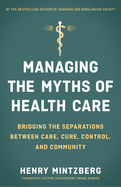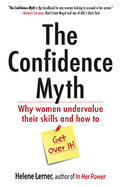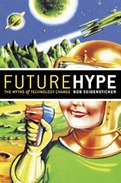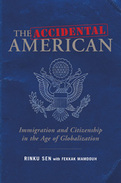Search Results: "The Millennial Myth"
Results 31-36 of 1169
Deliver razor-sharp points in all of your work communications! This updated classic enables you to captivate any audience, create meaningful impact, and make your words matter.Deliver razor-sharp points in all of your work communications! This updated classic enables you to captivate any audience, create meaningful impact, and make your words matter.
Every time you communicate, you're trying to move someone to feel, think, and act. You're trying to make a point. But very few communicators-regardless of their purpose or position-know their points, have true points, or even understand what a point is, rendering themselves pointless.
In this expanded second edition of the bestselling Get to the Point!, Joel Schwartzberg draws on his decades of experience as a strategic communications executive and public speaking coach to deliver a masterclass in high-impact communications for the digital age.
The new edition features a substantial amount of new content, including surprising research, real-world insight, and actionable tips that meet the modern needs of professionals up and down the organizational chart.
Using his trademark encouraging and often humorous voice, Schwartzberg helps you:
•Understand the Power of Points: Learn how points outperform topics, themes, and observations.
•Identify and Elevate Your Key Points: Create impactful speeches and slide presentations, emails and work chats, and Zoom and in-person meeting communications
•Distill Complex Ideas: Transform complicated concepts into crystal-clear messages.
•Boost Leadership Perceptions: Enhance impressions of competence and confidnce.
•Hook Audiences: Start and finish with compelling openings and closings.
•Tell Impactful Stories: Use stories, examples, and data in a way that highlights your points, not distract from them.
•Conquer Public Speaking Jitters: Use proven techniques to stay calm and in control
•Leverage AI Tools: Use artificial intelligence to support-not replace-effective communication
•Avoid Common Pitfalls: Sidestep the landmines that derail most communicators.
Whether you're a C-suite executive, salesperson, scientist, or student, Get to the Point! is a blueprint for evolving your written and spoken communications from informing to inspiring and pointless to powerful.
Don't just share ideas and make an impression. Champion your points and make a difference!
Every time you communicate, you're trying to move someone to feel, think, and act. You're trying to make a point. But very few communicators-regardless of their purpose or position-know their points, have true points, or even understand what a point is, rendering themselves pointless.
In this expanded second edition of the bestselling Get to the Point!, Joel Schwartzberg draws on his decades of experience as a strategic communications executive and public speaking coach to deliver a masterclass in high-impact communications for the digital age.
The new edition features a substantial amount of new content, including surprising research, real-world insight, and actionable tips that meet the modern needs of professionals up and down the organizational chart.
Using his trademark encouraging and often humorous voice, Schwartzberg helps you:
•Understand the Power of Points: Learn how points outperform topics, themes, and observations.
•Identify and Elevate Your Key Points: Create impactful speeches and slide presentations, emails and work chats, and Zoom and in-person meeting communications
•Distill Complex Ideas: Transform complicated concepts into crystal-clear messages.
•Boost Leadership Perceptions: Enhance impressions of competence and confidnce.
•Hook Audiences: Start and finish with compelling openings and closings.
•Tell Impactful Stories: Use stories, examples, and data in a way that highlights your points, not distract from them.
•Conquer Public Speaking Jitters: Use proven techniques to stay calm and in control
•Leverage AI Tools: Use artificial intelligence to support-not replace-effective communication
•Avoid Common Pitfalls: Sidestep the landmines that derail most communicators.
Whether you're a C-suite executive, salesperson, scientist, or student, Get to the Point! is a blueprint for evolving your written and spoken communications from informing to inspiring and pointless to powerful.
Don't just share ideas and make an impression. Champion your points and make a difference!
“Health care is not failing but succeeding, expensively, and we don't want to pay for it. So the administrations, public and private alike, intervene to cut costs, and herein lies the failure.”
In this sure-to-be-controversial book, leading management thinker Henry Mintzberg turns his attention to reframing the management and organization of health care.
The problem is not management per se but a form of remote-control management detached from the operations yet determined to control them. It reorganizes relentlessly, measures like mad, promotes a heroic form of leadership, favors competition where the need is for cooperation, and pretends that the calling of health care should be managed like a business.
“Management in health care should be about dedicated
and continuous care more than interventionist and episodic cures.”
This professional form of organizing is the source of health care's great strength as well as its debilitating weakness. In its administration, as in its operations, it categorizes whatever it can to apply standardized practices whose results can be measured. When the categories fit, this works wonderfully well. The physician diagnoses appendicitis and operates; some administrator ticks the appropriate box and pays. But what happens when the fit fails—when patients fall outside the categories or across several categories or need to be treated as people beneath the categories or when the managers and professionals pass each other like ships in the night?
To cope with all this, Mintzberg says that we need to reorganize our heads instead of our institutions. He discusses how we can think differently about systems and strategies, sectors and scale, measurement and management, leadership and organization, competition and collaboration.
“Market control of health care is crass, state control is crude, professional control is closed. We need all three—in their place.”
The overall message of Mintzberg's masterful analysis is that care, cure, control, and community have to work together, within health-care institutions and across them, to deliver quantity, quality, and equality simultaneously.
In this sure-to-be-controversial book, leading management thinker Henry Mintzberg turns his attention to reframing the management and organization of health care.
The problem is not management per se but a form of remote-control management detached from the operations yet determined to control them. It reorganizes relentlessly, measures like mad, promotes a heroic form of leadership, favors competition where the need is for cooperation, and pretends that the calling of health care should be managed like a business.
“Management in health care should be about dedicated
and continuous care more than interventionist and episodic cures.”
This professional form of organizing is the source of health care's great strength as well as its debilitating weakness. In its administration, as in its operations, it categorizes whatever it can to apply standardized practices whose results can be measured. When the categories fit, this works wonderfully well. The physician diagnoses appendicitis and operates; some administrator ticks the appropriate box and pays. But what happens when the fit fails—when patients fall outside the categories or across several categories or need to be treated as people beneath the categories or when the managers and professionals pass each other like ships in the night?
To cope with all this, Mintzberg says that we need to reorganize our heads instead of our institutions. He discusses how we can think differently about systems and strategies, sectors and scale, measurement and management, leadership and organization, competition and collaboration.
“Market control of health care is crass, state control is crude, professional control is closed. We need all three—in their place.”
The overall message of Mintzberg's masterful analysis is that care, cure, control, and community have to work together, within health-care institutions and across them, to deliver quantity, quality, and equality simultaneously.
The Confidence Myth
2015
Not only do we need more female leaders at the top, but we need more women at all levels of business, government, and nonprofits to step up—there's no time to waste. The problem, says Helene Lerner, isn't so much that women lack confidence but that they misunderstand what confidence really is.
True confidence isn't fearlessness; it's having the courage to jump in even when your knees are shaking. Any woman who waits until she feels 100 percent confident before offering a big idea or asking for a raise or promotion will never get anywhere. Drawing on her own and other female leaders' experiences, as well as on her survey of over 500 working women, Lerner lays out practical strategies for beating this confidence myth and overcoming obstacles like gender bias. The book features dozens of Confidence Sparks, simple but powerful exercises and techniques that can catapult anyone's career to the next level.
True confidence isn't fearlessness; it's having the courage to jump in even when your knees are shaking. Any woman who waits until she feels 100 percent confident before offering a big idea or asking for a raise or promotion will never get anywhere. Drawing on her own and other female leaders' experiences, as well as on her survey of over 500 working women, Lerner lays out practical strategies for beating this confidence myth and overcoming obstacles like gender bias. The book features dozens of Confidence Sparks, simple but powerful exercises and techniques that can catapult anyone's career to the next level.
Future Hype
2006
Everyone knows that today's rate of technological change is unprecedented. With technological breakthroughs from the Internet to cell phones to digital music and pictures, everyone knows that the social impact of technology has never been as profound.
Future Hype surveys the past few hundred years to show that many of the technologies we now take for granted transformed society in far more dramatic ways than recent developments so often touted as unparalleled and historic. Seidensticker exposes the hidden costs of technology and will help both consumers and businesses take a shrewder position when the next 'essential' innovation is trotted out.
- Convincingly debunks the myth that technology today is changing at an unprecedented rate and totally transforming modern society
- Gives readers the perspective to look skeptically at claims that every new technology is a world-changing breakthrough they must have
- Written by a twenty-five-year veteran of the high-tech industry who spent eight years as a Microsoft project manager
Dig Your Heels In
2019
Joan Kuhl helps women create a clear vision of what their career path deserves to be and make a convincing business case for equality to their managers and senior leadership. You'll learn strategies for overcoming sexist cultural attitudes about gender and leadership, as well as for dealing with self-limiting behaviors like Imposter's Syndrome (the feeling that you're never good enough despite a track record of success) and the Myth of Meritocracy (the idea that just doing good work is the only way to advance). Because relationships are absolutely crucial, Kuhl describes how to build support networks before you even need them and explains how to get actionable feedback that will help you get to the next level—the kind women rarely are afforded.
Case studies, practical exercises, and inspiring stories from Kuhl's work with clients at companies such as Eli Lilly and Company, Goldman Sachs, U.S. Soccer, BlackRock, South Carolina Asphalt Pavement Association and top business schools make this a truly comprehensive guide. It's an indispensable resource for women seeking to build the confidence and conviction to secure the seat at the table they've earned and create a welcoming workplace for everyone.
Case studies, practical exercises, and inspiring stories from Kuhl's work with clients at companies such as Eli Lilly and Company, Goldman Sachs, U.S. Soccer, BlackRock, South Carolina Asphalt Pavement Association and top business schools make this a truly comprehensive guide. It's an indispensable resource for women seeking to build the confidence and conviction to secure the seat at the table they've earned and create a welcoming workplace for everyone.
In this no-holds-barred nonfiction narrative, activist, organizer, and immigration expert Rinku Sen reveals the racial and cultural conflicts embedded in the current immigration debate and explodes the myth that those living in both sending and receiving countries can enjoy the economic benefits of immigration while keeping their cultures static.The Accidental American advocates a bold new approach to immigration: a free international flow of labor to match globalization’s free flow of capital. After all, corporations are encouraged to move anywhere in the world they can maximize their earnings. People shouldn’t have to risk exploitation, abuse, even imprisonment when they try to do the same.
Activist, journalist, and immigration expert Rinku Sen and organizer Fekkak Mamdouh examine the consequences of this injustice through Mamdouh’s own story. Born in Morocco, he was a waiter and union leader at Windows on the World, a restaurant in the World Trade Center, on September 11th. In the aftermath, facing a rising tide of anti-immigrant bias, Mamdouh and others formed the Restaurant Opportunities Center of New York to help their colleagues fight for decent jobs and fair treatment.
The experiences of Mamdouh and his coworkers vividly demonstrate the human cost of our flawed immigration policies. Since September 11th, immigrants have increasingly been treated as presumptive criminals. As a counterpoint to these regressive, fundamentally un-American practices, Sen forcefully advocates more humane policies, coupled with proposals for reforming globalization so that all countries can more equitably benefit from a mobile labor force.

















